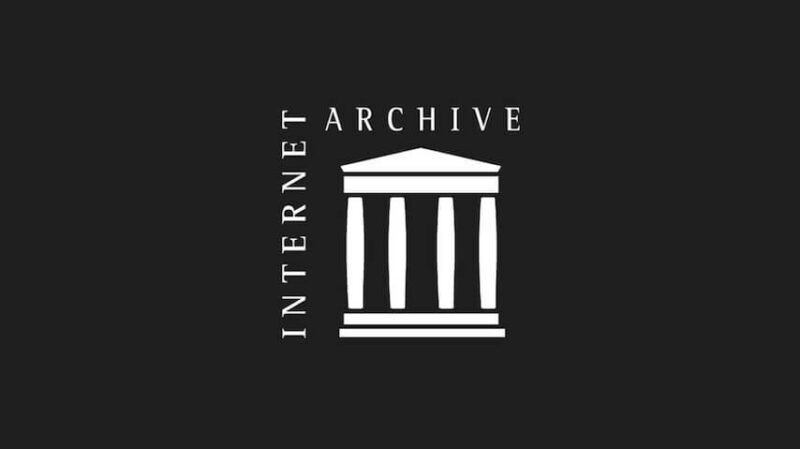The Internet Archive is one of the most significant digital repositories ever created, with a mission to provide universal access to all knowledge. It is a non-profit organization that offers free access to a vast collection of digitized resources, including websites, books, movies, music, and software. This article will explore the role of the Internet Archive, its history, contributions to digital preservation, and the challenges it faces as it navigates the complex world of copyright and information accessibility.
1. The Origins of the Internet Archive
In 1996, Brewster Kahle, a computer engineer and internet entrepreneur, founded the Internet Archive. He envisioned a free digital library to preserve knowledge during the internet age. Kahle recognized that web content, unlike physical books or libraries, could easily disappear or be altered without leaving a trace.
Since its inception, the Archive has grown exponentially, storing billions of web pages, along with millions of other digital artifacts, including texts, videos, audio files, and software. Its famous “Wayback Machine” is perhaps its most well-known feature, allowing users to visit old versions of websites and see how they have evolved over time.
2. The Wayback Machine: Time Travel for the Web
One of the key features of the Internet Archive is the Wayback Machine, launched in 2001. This tool allows users to view archived versions of websites as they appeared at different points in time. For instance, users can explore versions of popular websites like Google, Facebook, or news outlets from years or even decades ago, which has become an invaluable resource for researchers, journalists, and curious individuals.
The Wayback Machine has preserved over 700 billion web pages to date, acting as a “time capsule” of the internet. It captures snapshots of websites, preserving digital history and providing insight into how online culture and technology have evolved.
Maintaining records of websites that have gone offline or undergone significant changes is crucial.
In today’s fast-paced digital world, where websites can be removed or altered instantly, the Wayback Machine plays a vital role in holding institutions accountable, documenting public statements, and preserving disappearing knowledge.
3. Expanding the Archive: Books, Movies, Music, and Software
While the Wayback Machine preserves the internet history, the Internet Archive’s contributions go far beyond just websites. The organization has expanded its digital collection to include:
- Books: The Archive’s digital book collection includes over 38 million digitized books in various languages. It offers free access to public domain works and loans books that are still under copyright.
- Movies and Video Content: The Archive offers a collection of movies, television programs, and educational videos, including public domain films and classic media that might otherwise be lost to history.
- Music and Audio: The Internet Archive contains an extensive collection of live music recordings, including recordings from bands like The Grateful Dead, as well as audio lectures, podcasts, and historic radio programs.
- Software: One of the most fascinating aspects of the Internet Archive is its preservation of old software. Through the Internet Archive Software Collection, users can access and run vintage software directly through their browsers, allowing them to experience everything from early video games to obsolete operating systems.
4. Open Libraries and Public Access to Knowledge
In addition to the digital materials it preserves, the Internet Archive also manages the Open Library, an online project designed to create a web page for every book ever published. Users can browse, borrow, and read e-books directly from this platform. The Open Library provides access to millions of digitized books, many of which are freely available because they are in the public domain.
The Controlled Digital Lending (CDL) system is one of the ways the Archive balances copyright issues. CDL allows libraries to lend a digital copy of a book while ensuring that only one user can access the digital version at any given time, just as they would with a physical copy. However, this practice has sparked debates over copyright laws, as some publishers argue that CDL is not an equivalent to physical lending.
5. Digital Preservation and Cultural Significance
The preservation of digital content is crucial in a world where data can be erased or altered instantly. Without initiatives like the Internet Archive, much of the digital culture we create today could be lost forever. The Archive ensures that crucial historical events, cultural moments, and technological innovations are documented and preserved for future generations.
In recent years, the importance of digital preservation has become even more pronounced, especially in the wake of events like the COVID-19 pandemic, where significant societal changes occurred online. The Archive has worked to ensure that online educational resources, news articles, and even pandemic-related government responses remain accessible for research and analysis.
6. Challenges and Criticism
Although the Internet Archive has earned widespread praise for its efforts to preserve digital knowledge, it also faces significant challenges. Chief among these are copyright issues. While the Archive aims to provide free access to information, many publishers and creators argue that certain materials should not be freely available without proper licensing.
The National Emergency Library initiative became a focal point of a major legal battle when the Internet Archive launched it during the COVID-19 pandemic. They aimed to provide free access to a broader range of books while schools and libraries remained closed.. Publishers sued the Archive, claiming it violated copyright laws by offering their works without permission, even if the intent was to aid learning during a global crisis.
These legal challenges raise complex questions about the balance between access to information and protecting intellectual property. While the Archive has taken steps to limit access to copyrighted materials through its CDL system, it continues to face criticism and legal hurdles from those who believe its approach undermines copyright laws.
7. Internet Archive’s Global Impact
Despite its challenges, the Internet Archive remains a pivotal player in the global movement for open access to knowledge. Its vast digital repository serves educational purposes worldwide, especially in underserved communities with limited access to physical books, libraries, or educational materials.
The Archive’s influence extends into journalism, academia, and digital rights advocacy. Journalists rely on the Wayback Machine to fact-check claims and preserve records of changing narratives. Academics use the Archive to study historical documents, trends, and even obsolete technologies. Meanwhile, digital rights activists advocate for preserving the open internet, frequently citing the Internet Archive as a model for equitable sharing of digital knowledge. visit my website
8. The Future of the Internet Archive
Looking forward, the Internet Archive faces the challenge of evolving alongside the rapidly changing digital landscape.As digital content increases and more of our lives shift online, the Archive must scale its storage capabilities and address the challenges of international copyright laws.
The continued development of AI and machine learning may offer solutions for the organization’s growing data storage and categorization needs. Moreover, as governments and corporations become increasingly aware of the importance of digital preservation, partnerships and new forms of collaboration may emerge to support the Archive mission.
Conclusion
The Internet Archive is far more than just a library of digital artefacts; it is a critical institution working to ensure that the internet vast resources remain accessible and free for future generations. Through its extensive collection of websites, books, videos, and software, it serves as a cornerstone for education, research, and cultural preservation in the digital age.
Despite the challenges it faces, particularly regarding copyright issues, the Internet Archive remains an essential player in the fight for universal access to knowledge. By documenting internet history and preserving digital culture, the Archive ensures that today’s knowledge remains accessible and won’t disappear in an instant.


